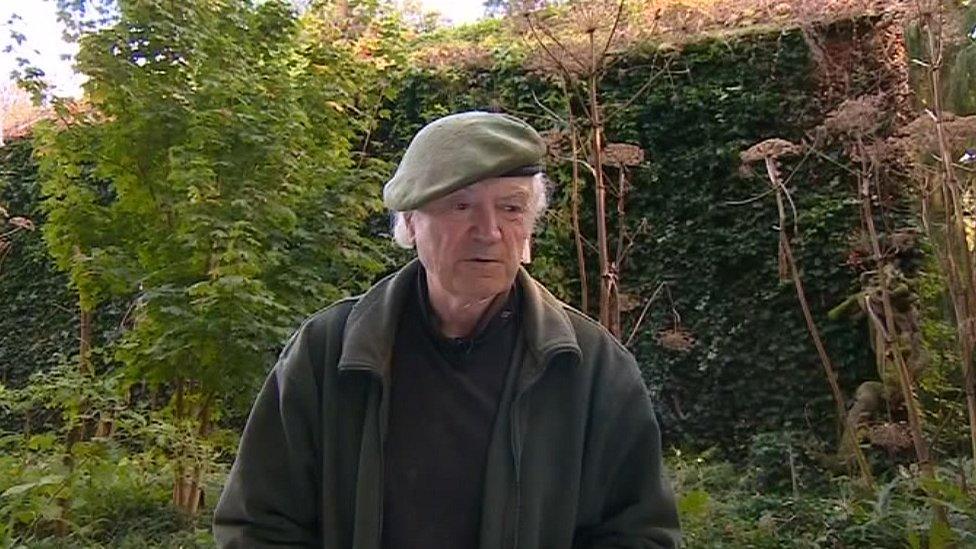Tony Martin: Man who shot burglars knows he still divides opinion
- Published
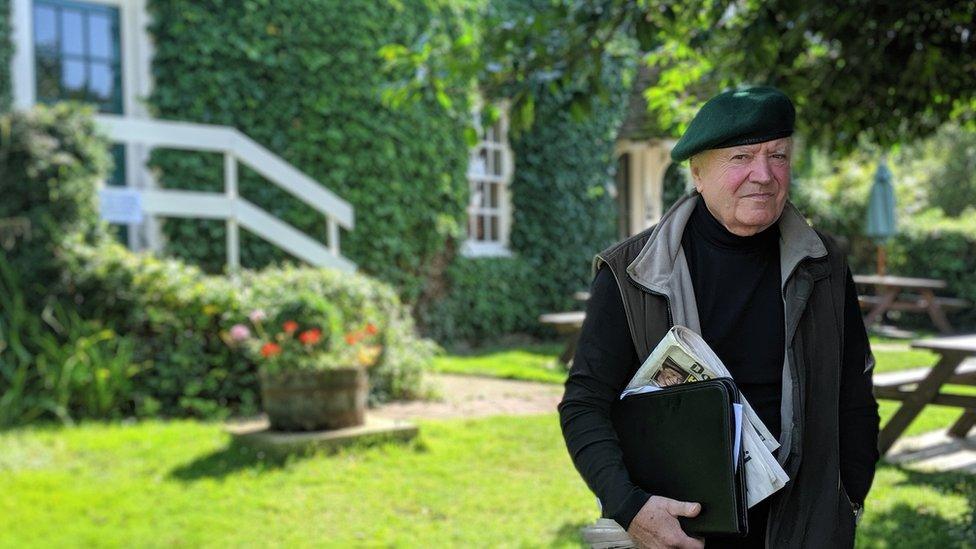
Tony Martin keeps a copy of a 2018 newspaper reporting the ruling Richard Osborn-Brooks, who also killed a burglar, did not act unlawfully
A farmer who shot dead a burglar breaking into his property has said he realises his conviction continues to divide people, 20 years on.
Tony Martin was jailed after killing teenager Fred Barras and injuring Brendon Fearon with an illegal gun at his Norfolk farmhouse.
His murder conviction caused a national debate over homeowners' rights.
"What happened to me is important to every man, woman and child in this country - not just to me," said Martin.

Fred Barras was 16 when he was shot by Tony Martin
The farmer, now 74, was convicted of murder in 2000 though it was later downgraded to manslaughter on grounds of diminished responsibility after a diagnosis of paranoid personality disorder, and he was released in 2003.
Fearon, 29, and 16-year-old Fred had travelled from Newark in Nottinghamshire on the evening of 20 August to raid Bleak House, the semi-derelict farm building in Emneth Hungate, Norfolk, where Martin stored antiques.
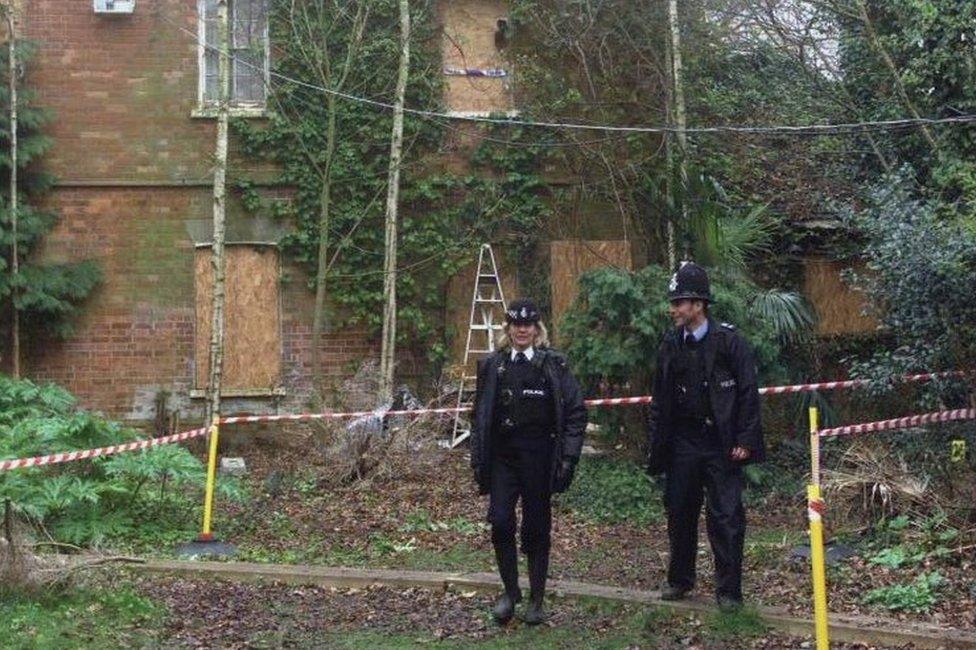
Police officers guard the scene of the shooting at Martin's farmhouse in August 1999
Upon hearing them, Martin came down from an upstairs bedroom and opened fire with a pump-action shotgun.
Martin claimed to have been acting in self-defence; prosecutors argued he had anticipated the pair and lay in wait for them.
The case attracted huge public attention, with his supporters casting him as a man taking a stand to defend his home and others seeing him as a violent eccentric who turned vigilante.
Law 'should protect'
Twenty years on from what he calls "that fateful night", Martin maintains he does not "have to excuse myself for anything", and believes the law still falls short in protecting householders defending their homes.
He insists his "problem" - the term he uses to refer to the break-in, shooting and imprisonment - matters, because he believes he should have been treated as the victim, not the criminal.
"I've always said when people get into exceptional circumstances which are beyond the norm, the law should leave you alone," he said. "You should be protected in law against these things."
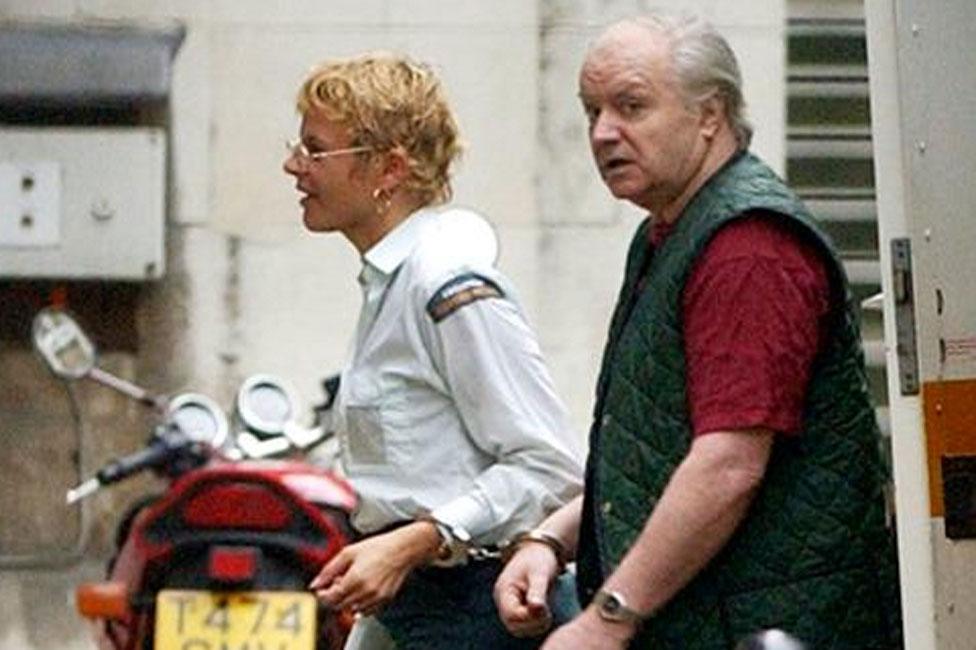
Martin, pictured in October 2001, served three years in prison
He followed closely the case of Richard Osborn-Brooks, the 79-year-old who last year stabbed to death a burglar at his home in south London, and who faced no charges.
In his car's glove compartment, Martin keeps a well-thumbed copy of a newspaper reporting the inquest conclusion that the burglar was lawfully killed.
"Every case is different but some people are of the opinion that, personally, he didn't do anything wrong," said Martin. "He didn't go to bed that night to end up killing somebody. It happened because these things do happen."
The law permits homeowners to use "reasonable force" to defend their homes against intruders, and was clarified in 2013 to recognise the highly-charged nature of such encounters.
In Martin's case, prosecutors successfully argued he had used excessive force in shooting both burglars in the back as they climbed out of a window.
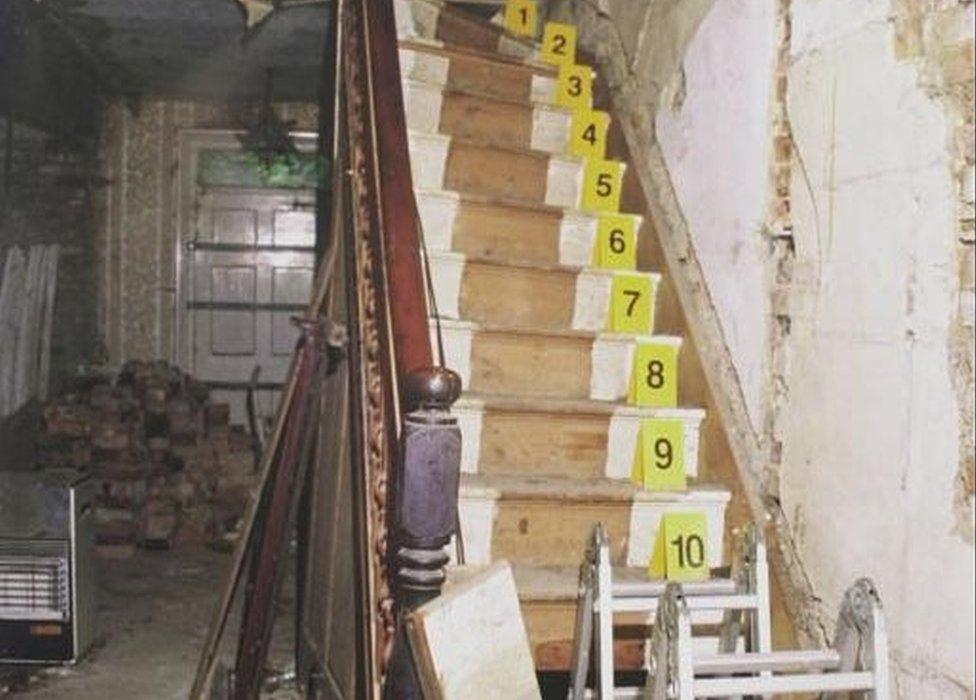
The stairs in Bleak House from which Martin shot Barras and Fearon

'Law has not changed'
The circumstances of Tony Martin's crime formed a "perfect storm" to split a nation over the rights of homeowners to defend themselves, said a leading criminologist - but did not change the law.
Prof David Wilson said Martin became a powerful and divisive symbol, held up both by those who believed his actions were justified and those who did not.
"Was he defending his home from intruders or simply a vigilante taking the law into his own hands?" said Prof Wilson, emeritus professor of criminology at Birmingham City University.
"I don't think any journalist missed the opportunity to frame that story in the way that suited their readership."
Despite those interpretations, Martin was found guilty - and the impact of his case has not changed the legal facts, Prof Wilson said.
"The law has not changed. You are allowed to take reasonable steps to defend yourself and your property.
"The test of what's reasonable was not felt to have been met in Martin's case because the intruders were running away."
The law allows for "reasonable force, external" to be used - a test Martin failed, leading legal experts to warn after the verdict, external that he should not be seen as "the typical Englishman trying to defend his castle".

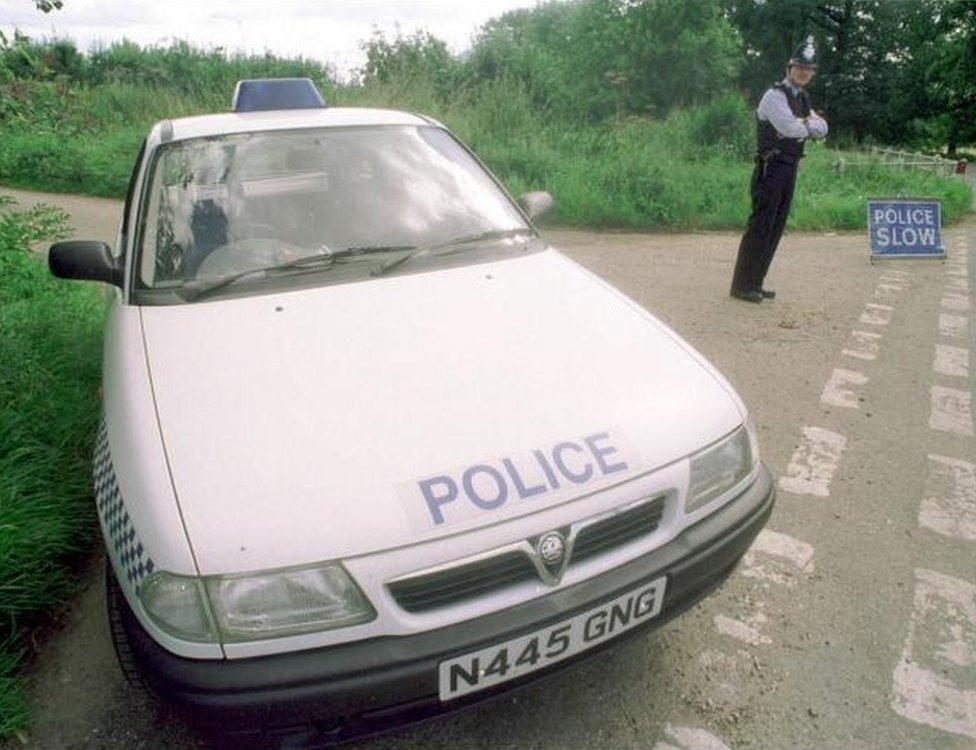
Police cordoned off Martin's remote farmhouse
'Icon or kiddy killer'
Though he claims to be a man who sees "in black and white", Martin understands his case still divides opinion.
To some he is "an icon", he says, citing the 4,000 cards he received on his first Christmas in prison. To others, such as those who confront him on the street, he is a "kiddy killer".
But he says the law continues to fail to factor in the isolation felt by many targets of burglary, particularly in rural locations.
"There's no comprehension or understanding of individuals who are on their own. In certain situations, you are on your own - it's as simple as that," he said.
"When I walked down that staircase that fateful night I took back control of my home."
Martin says he is still targeted by burglars, and has set up surveillance systems he claims show people trespassing to size up his properties.
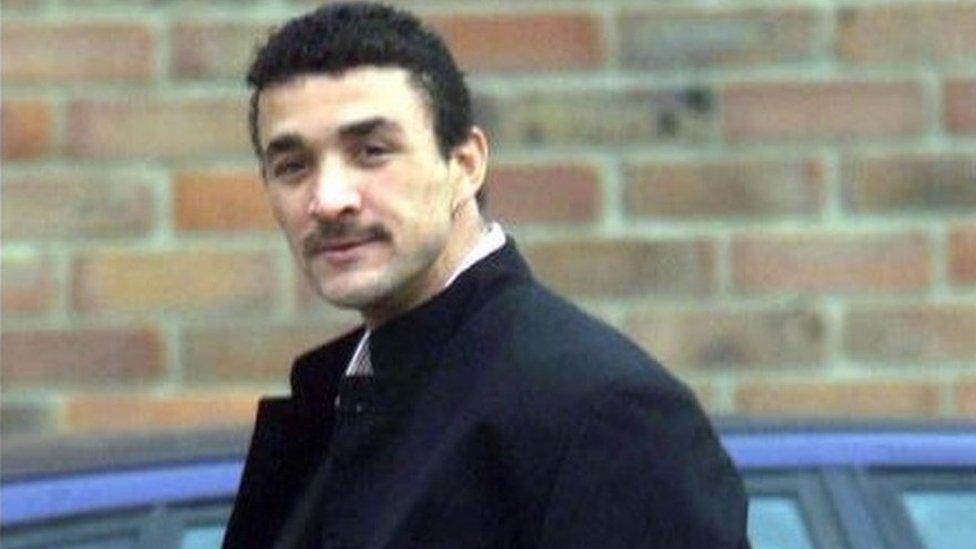
Brendon Fearon was wounded in the legs by Martin
During the court case in 2000, the jury heard Martin had developed a hatred of burglars after repeated break-ins at the farmhouse he inherited from his uncle.
After he was jailed, he says, he confronted a burglar in prison in an attempt to understand.
"I said: 'I understand you break into people's houses. Why do you do it?'," said Martin.
"He said that's how things are. He then turned his back. I said BANG!
"He said 'What's that?' and I said 'That's how things are.'"
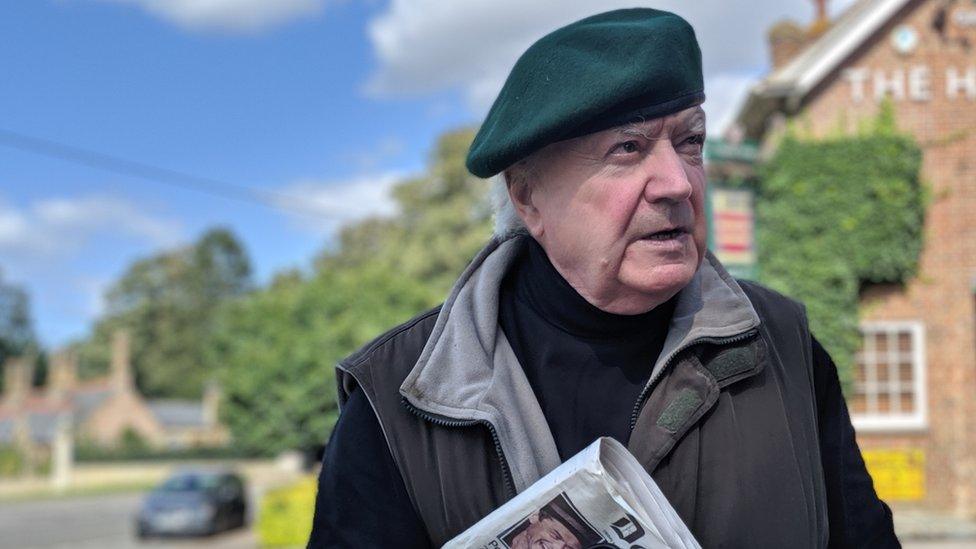
Tony Martin says he does not often think about the men he shot
Most years the anniversary passes without fanfare for Martin, more notable for the rapid drawing in of the nights than the events that sent him to prison.
He claims to rarely think of the two men he shot, conceding only their encounter changed his life "in many, many ways".
'I just stood there'
Two years ago, he paid a visit to the grave of Fred Barras in the teenager's home town of Newark.
"I saw a chap [in the graveyard], and said 'Do you know Barras and where his grave is? Do you mind taking me up there and showing me?'
"It was right up the other end from the gate. I just stood there and looked at it," said Martin.
"There's a photograph of him on it - it's the same photograph as the one people keep using. The only thing I have ever seen of him is the photograph."
The BBC approached Fred Barras's family but they said they did not want to speak about his death.
For years after the shooting, Martin refused to return to Bleak House, preferring to stay night-to-night with friends and his other properties in west Norfolk.
Twenty years on from the night that thrust him into the headlines, he remains a recognisable figure in his village and beyond, and one who continues to divide opinion.
- Published12 November 2018
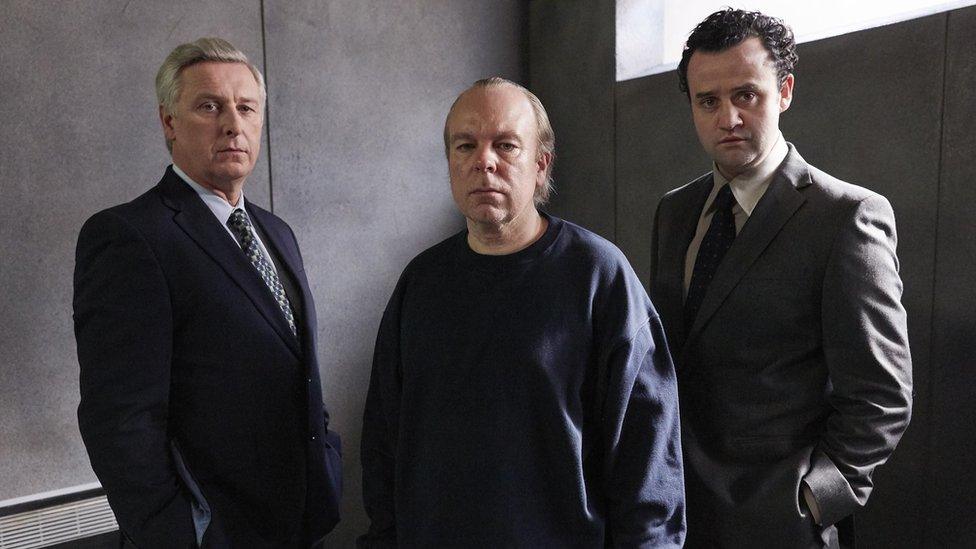
- Published12 February 2016
